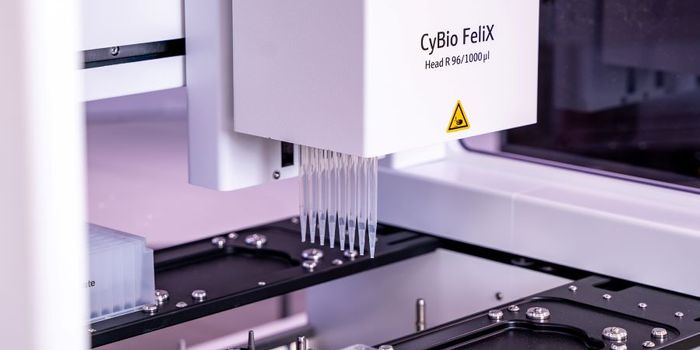Drug Could Seek New Approach For Autoimmunity
From a failed pain drug, a protein called ‘BH4’, was recently discovered to have surprising implications in the treatment of autoimmunity and cancer. It was specifically found that BH4 functions as a kind of “immunological thermostat” capable of raising and lowering the activity levels of an important kind of immune cell population—the T cells.

In colitis, an infiltration of activated T cells (shown in red on the left) is clearly visible in the colon. By blocking the BH4 pathway (shown at right), the researchers were able to deeply suppress T cell function. – Medical Xpress
Credit: Woolf Lab/Boston Childrens Hospital/IMBA
"By targeting BH4, we are able to suppress T cell activity in inflammatory conditions and increase their activity in the case of cancer," says co-leader of the study and Boston Children's Hospital pain researcher Clifford Woolf, MB, BCh, PhD. "The ability to target the same pathway in opposite directions is significant and represents a whole new therapeutic approach."
Researchers were able to inhibit T cell proliferation by pharmacologically blocking the BH4 pathway and in cancer models-- T cell responses were enhanced by elevating BH4 levels. Since researchers were aware that T cells need high levels of mitochondrial energy to be activated, and the mitochondria needs high levels of iron to produce that energy—they discovered that BH4 regulated the iron availability. So when the levels of BH4 are significantly low, mitochondria cannot receive iron and T cell activity is thus suppressed.
A simplified version of the BH4 pathway involving three important enzymatic reactions.
Credit: MyGeneFood.com
"The beauty of it is that the effect is upstream of specific types of T cell function," says Woolf. "Most drugs being developed now to treat autoimmune conditions are targeting specific kinds of T cells. This covers them all."
Although not required for the normal production of T cells, the BH4 pathway was found to be active in cases of infection or when proliferation is needed.
Learn more about the development of T Cells:
Researchers were then motivated to create a highly potent small molecule called ‘QM385’ which was found to inhibit the BH4 pathway—ultimately blocking T cell proliferation and autoimmunity.
Findings of the study were published in Nature.
Source: Science Daily, Nature









